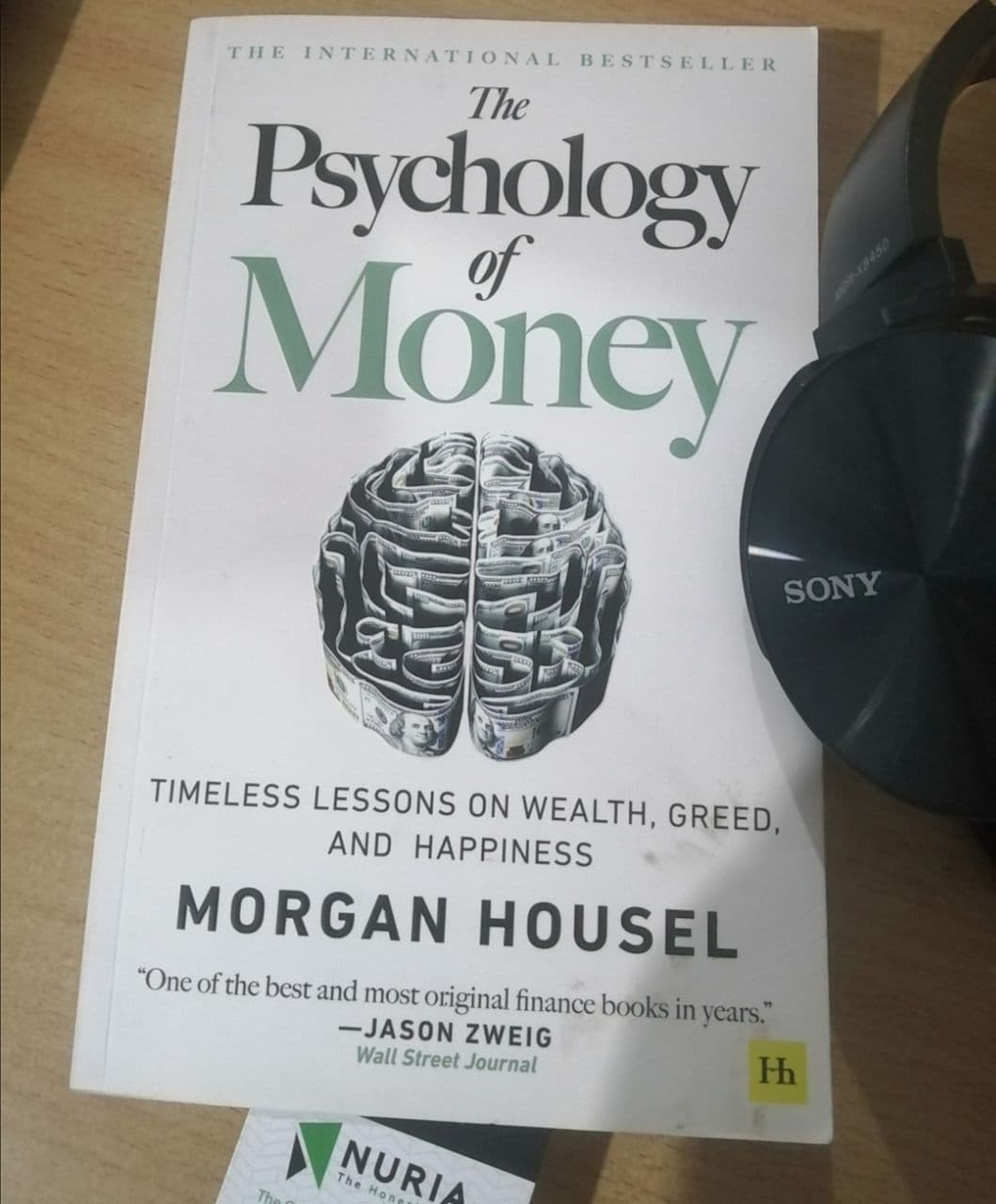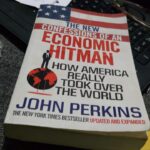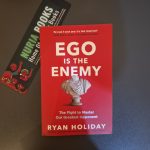I bought this book because of the spontaneous influence of cryptocurrencies in my life.
Am not an early adopter of Bitcoin or Dogecoin for that matter, but I first heard about them in 2015 thereby and disregarded them till 2021.
When I started researching and learning crypto, I learnt much about money and how it is supposed to serve us as time goes.
Cypto made me have a sharp thirst for books that talk about money and lucky for me, I asked around, and got this one; and this one is fresh, published in 2020 by Harriman House Limited.
The Psychology of Money: Timeless lessons on Wealth, Greed and Happiness is a very well-written book about the subjects of saving money, creating wealth and happiness, because money actually creates time for one who has it and that in turn creates happiness.
This 242-paged book is written in easy to grasp English.
The way Mr Housel explains tough concepts in simple English makes it hard to put down.
Phrases like ‘…financial success is not a hard science. It’s a soft skill, where how you behave is more important than what you know’.
The author stresses that soft skills such as savings, perseverance through rough times, compounding and long term outlook are important than the technical side of money.
Everybody sees the world though a different lense and it is emotions and nuance that control how we interact with money, not rules, laws and formulas in finance. Money gives one freedom.
Mr Housel actually takes the financial rule book, tears it to pieces and engages one directly.
“Money is better understood through the lenses of psychology and history, not finance”, he says
It is not easy to count on luck as the creator of wealth, but this is more often so, than those wealthy guys can admit. Why? They won’t admit it because luck cannot be put into mathematical formulas to be studied in school.
Nonetheless, there’s that true saying that one should earn more than what they spend, one should also save money, for no reason at all, one should also find something to invest money in.
A good investor is one who is confident but also knows that they don’t know everything; leaving room for error.
Mr Housel uses brief stories that are very catchy to teach how to think about money. The brief histories are about what real people did with money; some to their failure, others to their success.
I loved the topic on savings more.
Savings
“It’s great to save for a car, or a down payment or medical emergency. But saving for things that are impossible to predict or define is one of the best reasons to Save”, Morgan Housel says, save for no reason at all, just save money.
How do you save money?
One way is to stop trying to impress people with flashy or fancy things because, truth be told ‘no one is impressed by your possessions as much as you are’. People just want to copy the next person in terms of flashy things, but in the end, most take out debt to do this. Which is counterproductive.
Wealth is what you don’t see, because spending money to show people how much money you have is the fastest way to have less money.
Fake it until you make it is a stupid idiom, I posit. Wealth is putting off buying that designer shirt, that Rolex watch, putting off going out and spending Sh15k on drinks then coming back to boast later in stories of how you spend over Sh20k in drinks. Wealth is built by self-control.
Am not saying Sh3k is little money. SAVE.
As for me, learn to stay alone, ride the wave of being alone, master the art, get out or buy things only if they matter. It’s hard and requires self-control.
When ou have money save somewhere, and you’ve learnt to live just below what you get paid, you are free.
Freedom and independence is great.
Independence is the ability to spend time as you wish,
“The ability to do what you want, when you want, with who you want, for as long as you want to pays the highest dividend that exists in finance.
There’s no right or wrong thinking. But there’s making money work for you.
This book is best suited for those of us that love art (emotions and nuance). It might not be good for those studying hardcore finance (rules and laws). But outside the lecture halls, it is suited for everyone, because it talks about the psychology of money; and remember, “Money is better understood through the lenses of psychology and history, not finance”. Because one cannot quite explain the 2008 economic downturn in laws and rules; finance terms, but better from the lenses of psychology and history
For most part, this is what I wanted to hear about money, I believe. I would like one that briefly talks about the history of money.
No matter what you earn, have you put some money into a savings account? Have you forgotten about it? YOU SHOULD.
Read this book: buy it from Nuria Store.




